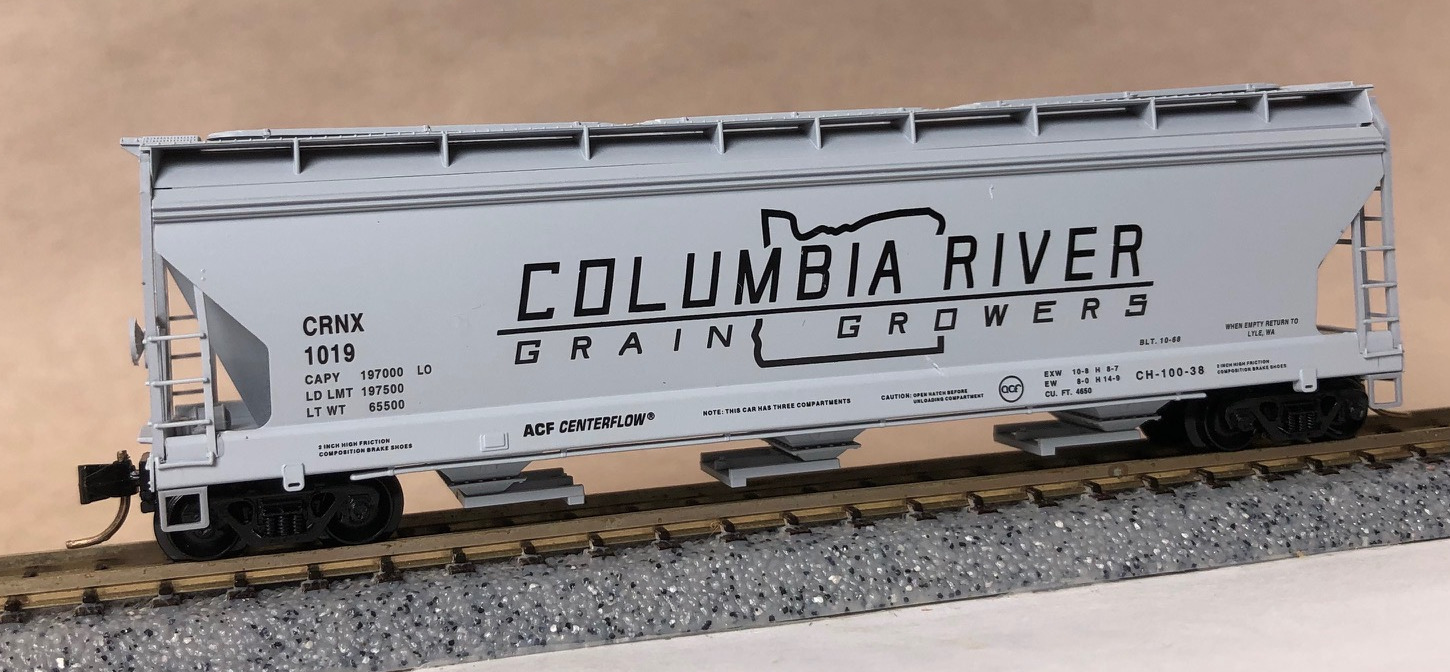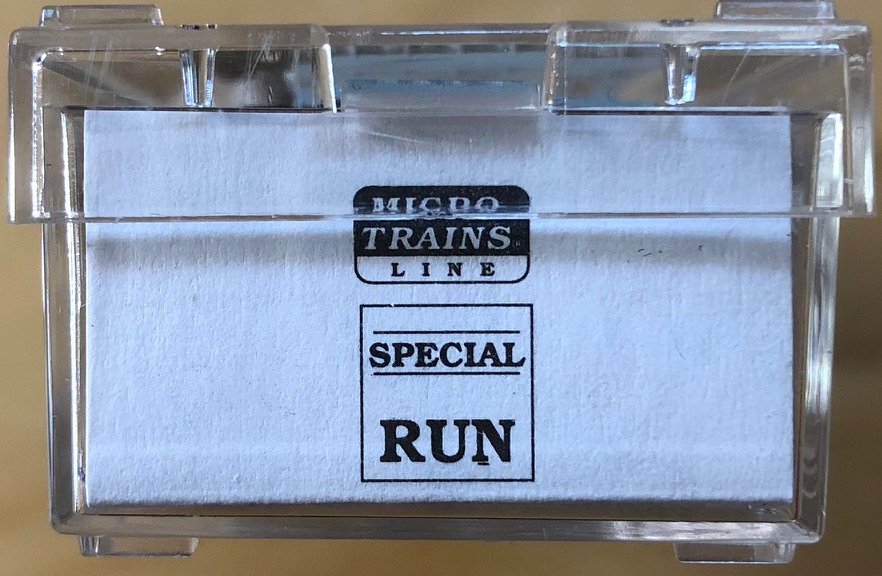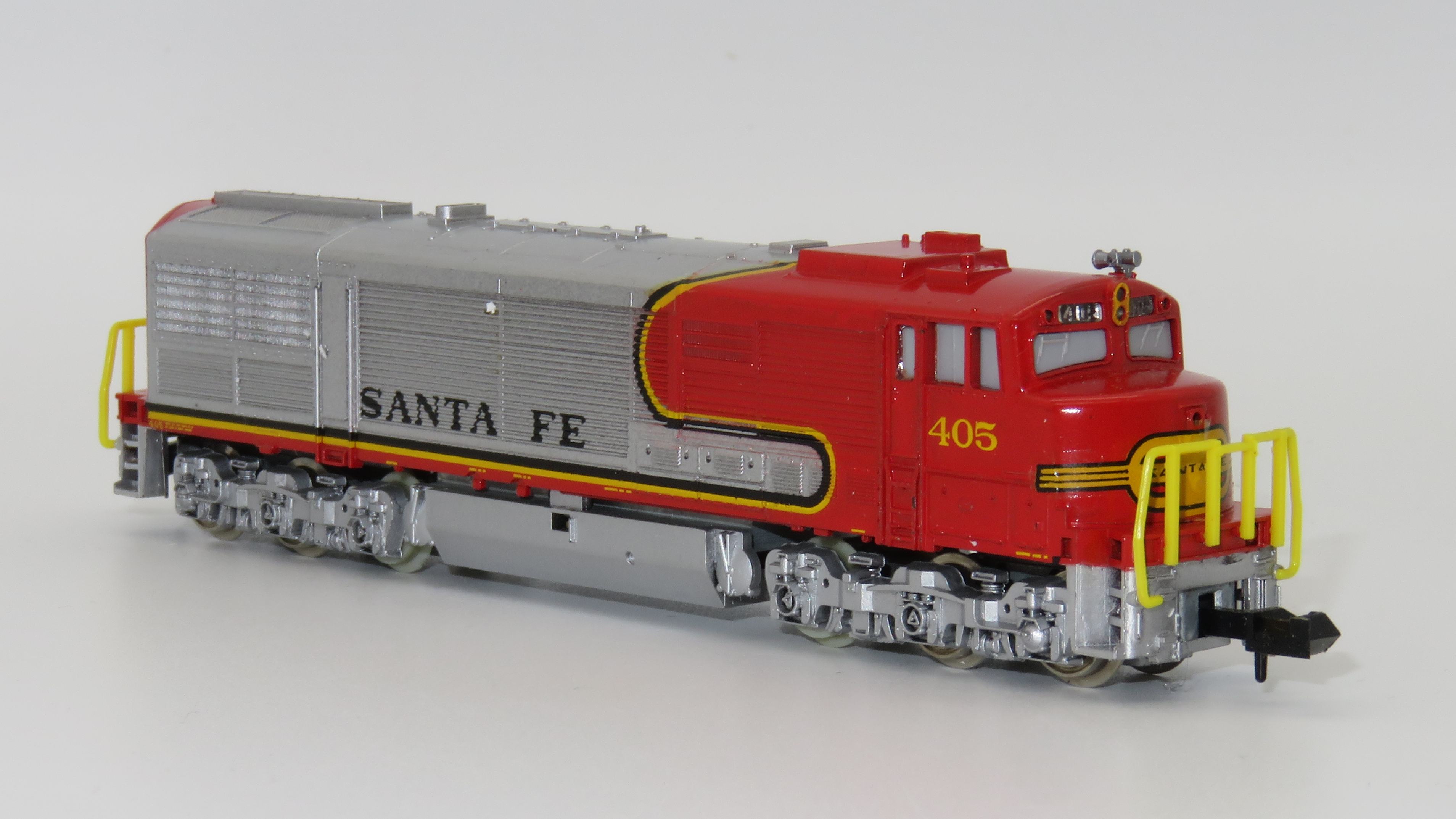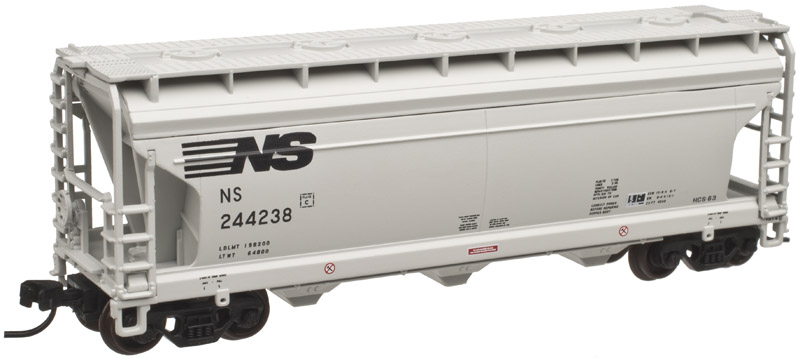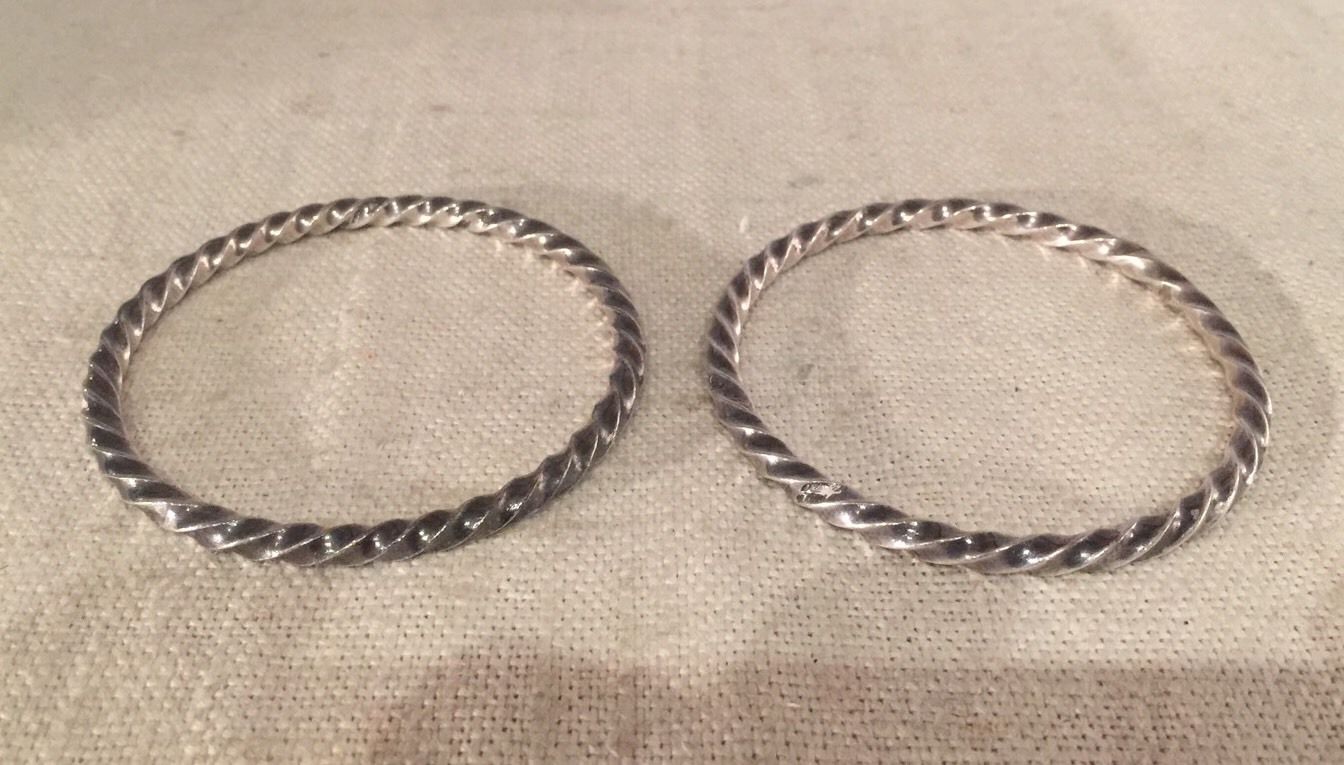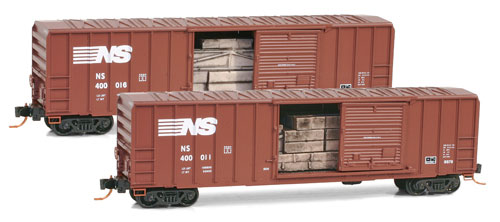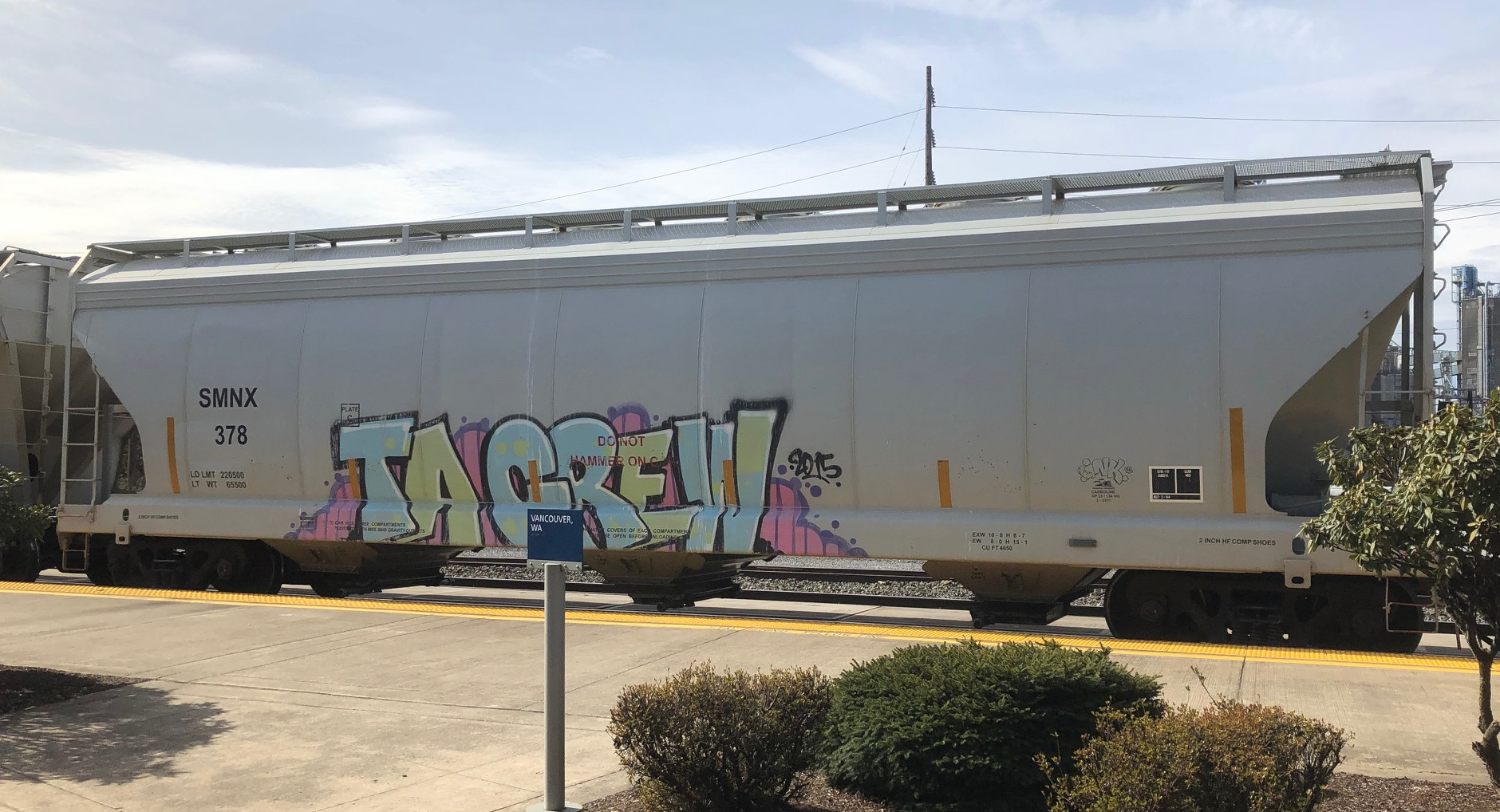Specific Item Information: This is a variation version of the Columbia Grain cars commissioned by Lowell Smith. Less than 50 of these cars with this road number exist. It was only available as a single car and not part of the two-car set.
Prototype History: Production of the 4650-cubic foot 3-bay cars began in 1964. ACF built 2504 examples at Huntington, WV, between 1964 and 1972. The ACF 4650 c.f. 3-bay hopper was the same height and width as the 5250 c.f. 4-bay car but several feet shorter in length (and only had 3 bays!). Some railroads that were not concerned about having the larger plate C clearance 4650cf cars (which could not be used on all branchlines or at all loading facilities) opted for large fleets of 4650cf cars instead of 4600cf. UP and SP were two such railroads (all of the current UP 4600cf cars came from either MP or C&NW heritage).
Hatches: 6 30", 6 20", 3 pressed steel elongated (SP, SSW, 3 piece pressed steel continuous or 4 piece FRP continuous. Outlets: Several types of bolted or welded on outlets are used. Uses: Grain, soda ash, platic pellets. Trucks: 77 ton friction or roller bearing. 86 had 100 ton roller bearing.
Hatches: 6 30", 6 20", 3 pressed steel elongated (SP, SSW, 3 piece pressed steel continuous or 4 piece FRP continuous. Outlets: Several types of bolted or welded on outlets are used. Uses: Grain, soda ash, platic pellets. Trucks: 77 ton friction or roller bearing. 86 had 100 ton roller bearing.
Brand/Importer Information: Micro-Trains is the brand name used by both Kadee Quality Products and Micro-Trains Line. For a history of the relationship between the brand and the two companies, please consult our Micro-Trains Collector's Guide.
Manufacturer Information:  Micro-Trains Line split off from Kadee Quality Products in 1990. Kadee Quality Products originally got involved in N-Scale by producing a scaled-down version of their successful HO Magne-Matic knuckle coupler system. This coupler was superior to the ubiquitous 'Rapido' style coupler due to two primary factors: superior realistic appearance and the ability to automatically uncouple when stopped over a magnet embedded in a section of track. The success of these couplers in N-Scale quickly translated to the production of trucks, wheels and in 1972 a release of ready-to-run box cars.
Micro-Trains Line split off from Kadee Quality Products in 1990. Kadee Quality Products originally got involved in N-Scale by producing a scaled-down version of their successful HO Magne-Matic knuckle coupler system. This coupler was superior to the ubiquitous 'Rapido' style coupler due to two primary factors: superior realistic appearance and the ability to automatically uncouple when stopped over a magnet embedded in a section of track. The success of these couplers in N-Scale quickly translated to the production of trucks, wheels and in 1972 a release of ready-to-run box cars.
Micro-Trains Line Co. split off from Kadee in 1990 to form a completely independent company. For this reason, products from this company can appear with labels from both enterprises. Due to the nature of production idiosyncrasies and various random factors, the rolling stock from Micro-Trains can have all sorts of interesting variations in both their packaging as well as the products themselves. When acquiring an MTL product it is very important to understand these important production variations that can greatly enhance (or decrease) the value of your purchase.
Please consult our Micro-Trains Collector's Guide

Micro-Trains Line Co. split off from Kadee in 1990 to form a completely independent company. For this reason, products from this company can appear with labels from both enterprises. Due to the nature of production idiosyncrasies and various random factors, the rolling stock from Micro-Trains can have all sorts of interesting variations in both their packaging as well as the products themselves. When acquiring an MTL product it is very important to understand these important production variations that can greatly enhance (or decrease) the value of your purchase.
Please consult our Micro-Trains Collector's Guide
Commissioner Information:  Desiring to bring a creative and artistic approach to model railroad cars, Lowell Smith Signature Series was born in 1994. The first special run car commemorated the Sesquicentennial (150th anniversary) of the Golden Spike - "Wedding of the Rails". Since 1994, Lowell Smith Signature Series has continued to produce over one hundred and thirty-five unique cars or train locomotives to date.
Desiring to bring a creative and artistic approach to model railroad cars, Lowell Smith Signature Series was born in 1994. The first special run car commemorated the Sesquicentennial (150th anniversary) of the Golden Spike - "Wedding of the Rails". Since 1994, Lowell Smith Signature Series has continued to produce over one hundred and thirty-five unique cars or train locomotives to date.
A native of Portland, Oregon, Lowell Smith married his church choir sweetheart Barb in 1978. After a lifetime of rail-fanning, Lowell and Barb ventured out in 1992 to launch a new business in Portland, Oregon.
Following Lowell's passion of model trains, The Hobby Smith was built to be the community center for model railroaders - operators and collectors alike. Located in the Hollywood District of Portland, The Hobby Smith was the place to learn and to enjoy the camaraderie of others with the same passion.
A native of Portland, Oregon, Lowell Smith married his church choir sweetheart Barb in 1978. After a lifetime of rail-fanning, Lowell and Barb ventured out in 1992 to launch a new business in Portland, Oregon.
Following Lowell's passion of model trains, The Hobby Smith was built to be the community center for model railroaders - operators and collectors alike. Located in the Hollywood District of Portland, The Hobby Smith was the place to learn and to enjoy the camaraderie of others with the same passion.
Item created by: gdm on 2017-06-04 08:53:37. Last edited by Lethe on 2020-05-07 00:00:00
If you see errors or missing data in this entry, please feel free to log in and edit it. Anyone with a Gmail account can log in instantly.
If you see errors or missing data in this entry, please feel free to log in and edit it. Anyone with a Gmail account can log in instantly.


